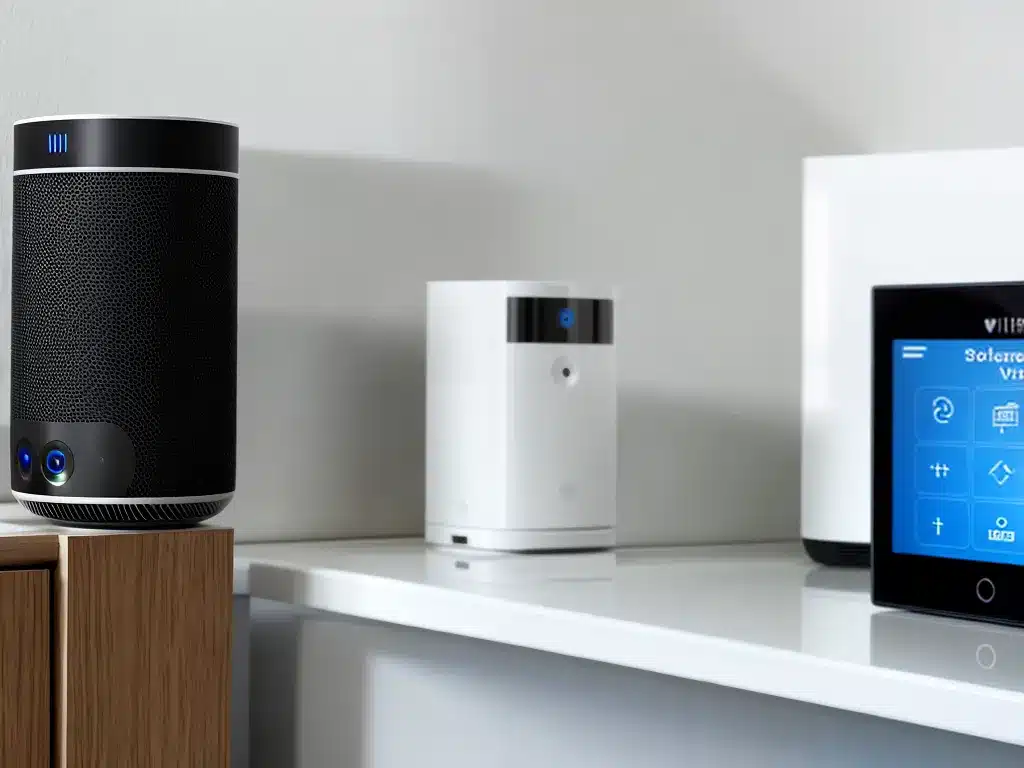
Smart Homes Get Smarter With New Voice Control Systems
Introduction
Smart home technology has come a long way in recent years. With the proliferation of voice assistants like Amazon Alexa, Google Assistant, and Apple’s Siri, smart homes are easier than ever to control hands-free using just your voice. In this article, I will discuss the evolution of voice control in smart homes and provide an overview of the latest advancements making homes even smarter.
Brief History of Voice Control in Smart Homes
While the concept of smart homes has been around for decades, voice control is a more recent development. Here’s a brief timeline:
- In 2011, Apple introduced Siri on the iPhone 4S, demonstrating the possibilities of a voice-based virtual assistant.
- In 2014, Amazon launched the Amazon Echo smart speaker with its voice assistant Alexa, bringing voice control into the home.
- In 2016, Google entered with its own dedicated smart speaker called Google Home using the Google Assistant.
These virtual assistants could initially control only basic smart home devices like lights and thermostats. But the technology has improved exponentially, allowing more natural conversations and integration with more devices.
Latest Innovations in Voice Control Systems
Here are some of the most exciting new developments in voice-based smart home technology:
Natural Conversation Capabilities
- Virtual assistants like Alexa and Google Assistant are becoming more conversational. They can now understand context, allowing for more natural back-and-forth interactions.
- You can now ask follow-up questions without repeating the subject every time. For example, “Alexa, what’s the weather today? Will it rain?”
Integration with More Device Categories
- Beyond lights, plugs and thermostats, voice assistants can now control smart locks, garage doors, vacuums, sprinklers, home entertainment systems and more.
- This allows you to access and control virtually any device in your home through voice commands.
Interoperability Between Platforms
- There is increasing interoperability between voice assistants like Alexa and Google Assistant.
- For example, you can now use Google Assistant to control Zigbee-enabled smart home devices, which were previously exclusive to Alexa.
Contactless Control for Health/Safety
- Voice control provides contactless control of your home. This has become especially relevant given the COVID-19 pandemic.
- You can turn on lights, control the TV, adjust the thermostat, and more with just your voice, reducing touches on shared surfaces.
Remote Access
- Many home automation systems now allow you to control devices even when away from home.
- Using your phone, you can interact with your home assistant remotely, like arming the alarm system or checking if you left appliances on.
Smart Home Technology Leaders
The smart home ecosystem has many players. Here are some of the leaders driving innovation in voice control:
- Amazon – Alexa powers Amazon’s own smart speakers like Echo Dot and 3rd-party devices. Alexa controls the most number of smart home devices currently.
- Google – The Google Assistant has deep search integration and runs on Google Home speakers and other devices.
- Apple – Siri is seamlessly integrated with Apple’s product ecosystem, including HomePod and HomeKit-enabled accessories.
- Samsung – Samsung’s Bixby assistant can control the company’s various home appliances and SmartThings ecosystem.
The Future of Voice Control in Smart Homes
Voice-based smart home technology will only get more advanced. Here are some possible future developments:
- More conversational abilities with true back-and-forth dialogue.
- Voice biometrics for identification, personalization and security.
- Augmented reality features like virtual TV screens anywhere in your home.
- Expanded smart home ecosystems that include emerging device categories like electric vehicles, robots, and drones.
- Seamless integration across brands for interconnectivity between all your devices.
The possibilities are endless. Our homes are getting smarter every day thanks to incredible innovation in voice-based artificial intelligence and natural language processing. Voice control is undoubtedly the future of managing a convenient, automated and efficient smart home.












